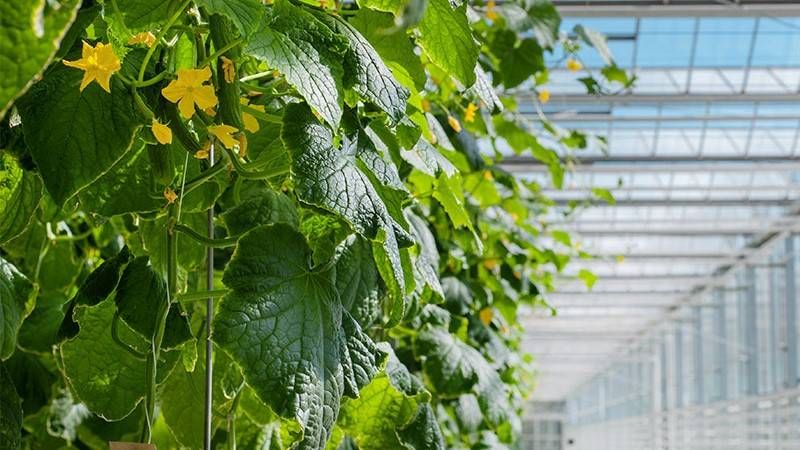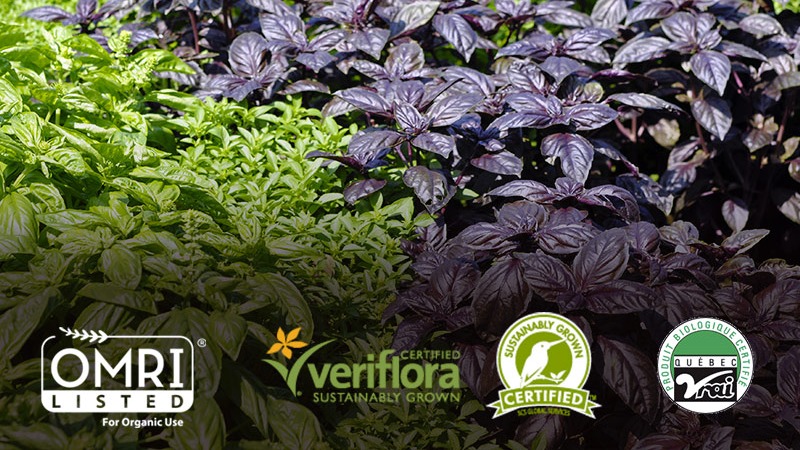Organic Certifications and Services

For 40 years, Premier Tech has been committed to research in the field of natural active ingredients for incorporation in crop input products for professional growers. Professional brands carried by Premier Tech, such as PRO-MIX® and AGTIV®, include products and growing media that are certified inputs for organic crop production, or even some that are eligible for certification, but that are not certified.
Organic certification is a rather complex subject, this is a short summary of how it works, especially in the North American market. Better understanding the principles may help you look for the right resource when it comes to choosing the right inputs for your crops, or even knowing that your crop input manufacturer may help you in the approval of products with your certifier.
What Is “Organic”?
The term “organic” itself, in a regulatory sense, designates an official validation that a product respects the standards for organic production. Most of the time, it means without the use of chemical fertilizers, pesticides, or other artificial agents.
How Does the Certification Work?
To a certain extent, both Canadian and American authorities share a similar system as to how organic produce (food/feed/seeds) are certified, along with crop inputs. However, crop inputs cannot be certified “organic”, they rather are “certified for use in organic agriculture”. The USDA (United States Department of Agriculture) applies the NOP (National Organic Program) the same way the CFIA (Canadian Food Inspection Agency) applies the COR (Canadian Organic Regime).
Both authorities accredit third parties, called “Certification Bodies” (OMRI, Pro-Cert, Ecocert, Québec Vrai, to name a few) to review and inspect organic producers so that they are conducting their operations in compliance with the organic standards, and that crop input manufacturers respect the same standards in their operations. The standards consist of two components:
- Acceptable practices in organic agriculture production systems.
- A list of permitted (and prohibited) substances, which indicates generic substances that can be used as inputs in organic production.
Hence, to be suitable for organic agriculture, a multi-ingredient input product (such as a potting soil, a growing medium, an inoculant, a pesticide, or a fertilizer) must contain exclusively ingredients from the permitted substances list and must be produced according to the right practices.
There are 17 certification bodies in Canada, which certifications are recognized across the country. A producer can choose any certifier, which will permit the use of certified or eligible crop inputs that are reviewed by any Canadian certifier. Certification bodies in the U.S are more than 80, which all comply with the NOP, but which also may have certain specificities, depending on state regulations.
Note that territories, even if they share a similar system, have different interpretations and some important differences in permitted ingredients for crop inputs, some of which may be certified in a country, but not in another.
How Is an Input Certified?

As a crop input manufacturer, Premier Tech can choose to work with certification bodies to figure in the list of certified products and use the certification bodies’ logos (Québec Vrai, OMRI) on product packaging. Different products can be certified by different certifiers, depending on targeted markets and other considerations.
To be certified, an input and all its ingredients must be evaluated against the organic production standards of the territory in question, as well as the processing of both ingredients and finished product, ensuring:
- Individual ingredients are on the list of permitted substances,
- Compliant manufacturing processes are used,
- Input is free of:
- synthetic pesticides,
- GMO materials,
- chemical fertilizers or sewage sludge,
- contaminants.
The manufacturer must provide the certifier with all required documentation regarding the standards and let inspectors, when needed, visit and audit operations. Most will conduct on-site inspections to validate control and traceability throughout the supply chain including inputs, production, processing, manufacturing, packaging, labelling, storage, and distribution. Certification bodies may conduct renewals to ensure that approved products continue to be compliant with the requirements.
What About Eligible Products That Are Not Certified?
Every organic grower works with a certification body to ensure his or her production respects the organic standards. A grower may choose crop inputs from lists of certified inputs or may look for eligible products with his or her favorite manufacturer.
Along with many certified products, Premier Tech offers several products that are eligible (but not certified) for the use in organic crop production in agriculture and horticulture and offers to help growers with the validation process. And it’s way easier than it looks!
How we can help
If you are looking for eligible products or have already found one in our catalogue, feel free to contact our Client Services for them to connect you with one of our Regulatory Advisors. They will gladly contact your certifier to give them the required documentation. Your certifier will then validate that you can use the product without jeopardizing your organic certification.
Certification bodies and our Regulatory Advisors are accustomed to the process, which is fairly quick and effortless for the grower.